Hiking as an Act of Resistance: A Manifesto (kind of)

This article was originally published on Medium. It is republished here with permission from the author.
Seen the movie Wall-E? The 2008 Pixar film?
Here’s a quick recap: Earth has become a wasteland — skyscraper mounds of trash, abandoned buildings, the remnants of megacorporation greed and consumption.
We don’t see any people until about halfway into the movie. Those who survived escaped on a massive floating spaceship called the Axiom. It’s not unlike a luxury cruise — endless entertainment, amenities, distractions. The people glide about on automated hover chairs. They stare at multiple floating screens at once. Fast food is placed in their hands. They are all obese. They are all oblivious to their surroundings. They all can’t seem to imagine anything different.
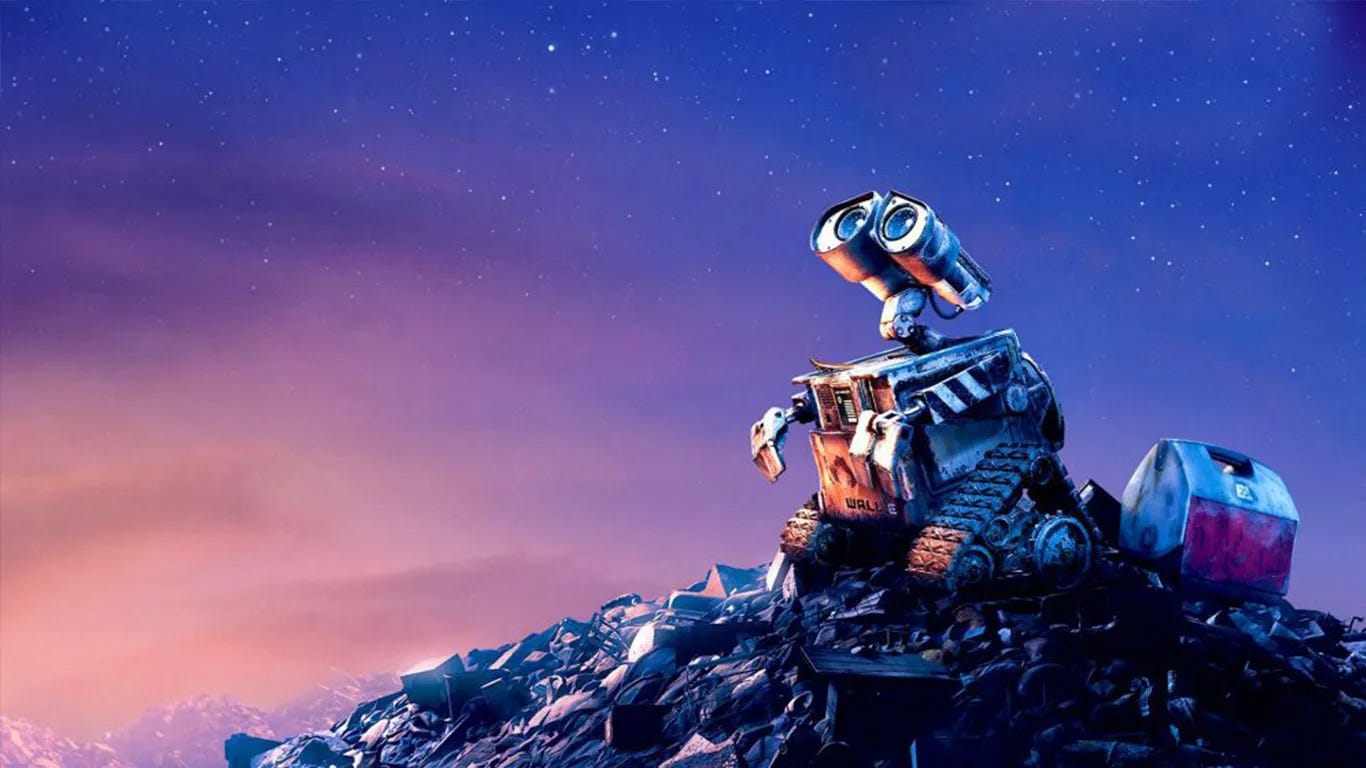
The movie came out the same year as the iPhone.
In some ways its vision of the future seems optimistic compared to the path we’re now on.
In the movie, the robots end up saving humanity.
Love the film but I wouldn’t bank on that scenario.
. . . . .
What does any of this have to do with hiking?
Like many others I’ve met over the past few years, I began hiking regularly in the wake of the pandemic.
The world had become too much. Too dissonant. Too remote. Too contained.
It wasn’t just that we were trapped inside and forced to watch hysterical news coverage or shows like Tiger King (though that was part of it). It was that some of us started to clue in to the fact that apps and algorithms were turning us into something different. They were literally rewiring our brains.
We checked our phones compulsively. We scrolled. We felt outraged and exhausted and powerless. We were less independent, spontaneous, physical, fulfilled.
We were becoming less human.
This wasn’t a bug of the system. It was the intent.
Addiction and mass compliance were good business. As were the endless culture wars.
So I opted out. As much as I could.
I rejected the terms. I tried to reclaim my humanity. It’s still a work in progress. You’re pushing against all of society’s social conditioning.
But this is why, in the year 2023, hiking is not just a mundane pastime.
It is an act of resistance.
. . . . .
One lesson from Wall-E is how susceptible we are to going with the flow. We accept the terms of life that surround us.
If everyone is downloading TikTok or angry at a celebrity or country or politician, we tend to follow suit. It’s hard to go against the current, especially strong currents.
The default in 2020s America is to spend the majority of our days and lives relentlessly responding to messages and passively consuming the sophisticated, seductive algorithm fed to us on our screens. Which is fine until it’s not. It’s no coincidence that mental health has steadily declined every year since 2008. This in spite of a massive rise in mental health awareness, prescription medications, and therapy. We’re now at crisis levels, especially for young people.
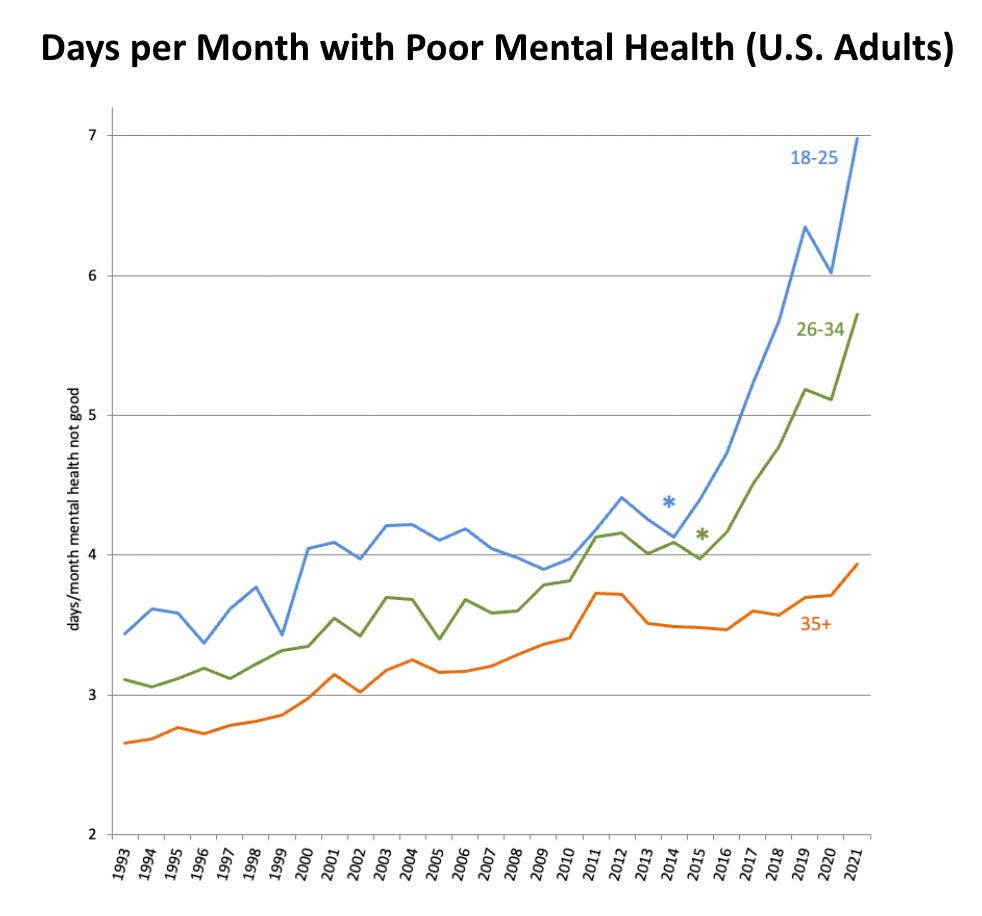
Hiking won’t solve all of our problems, but it’s a signal of intent. It’s a literal departure from this status quo.
It doesn’t cost money. That alone makes it antithetical to society’s most powerful strings.
It doesn’t require technology. It doesn’t require a username or password.
It requires other things though. Among them: Time. Effort. Attention.
For those of us who have straddled different eras, it reminds what life used to feel like. Not that we were all wandering about in the mountains back then. The 80s and 90s were media-saturated in their own ways. But it was different. We all know it felt different. There were more hidden seams. Places untouched by GPS.
Time felt different too. It’s strange that time can feel so different.
I’m 42 now. The first 21 years of my life I never left the house with a phone. I didn’t feel the constant pull of texts, alerts, updates, likes. None of us did. Our minds wandered a lot because they could. We did physical things all the time, rarely documented or shared with the public.
We didn’t need to. We were already there.
. . . . .
There’s sometimes a point when I’m hiking when I feel a sudden euphoria. It’s hard to describe. I associate the feeling with what life often felt like as a child. A mixture of joy and wonder and wildness.
Usually it’s when my phone is no longer pinging. I’m a couple of hours out.
You stop seeing people as much.
You can hear the squirrels rustling in the bushes or the river moving over the rocks or the birds calling. You feel curious about everything.
You can feel the sun and the sweat dripping down your neck. You can feel your heart beating.
You feel reconnected. In tune.
It feels incredible.
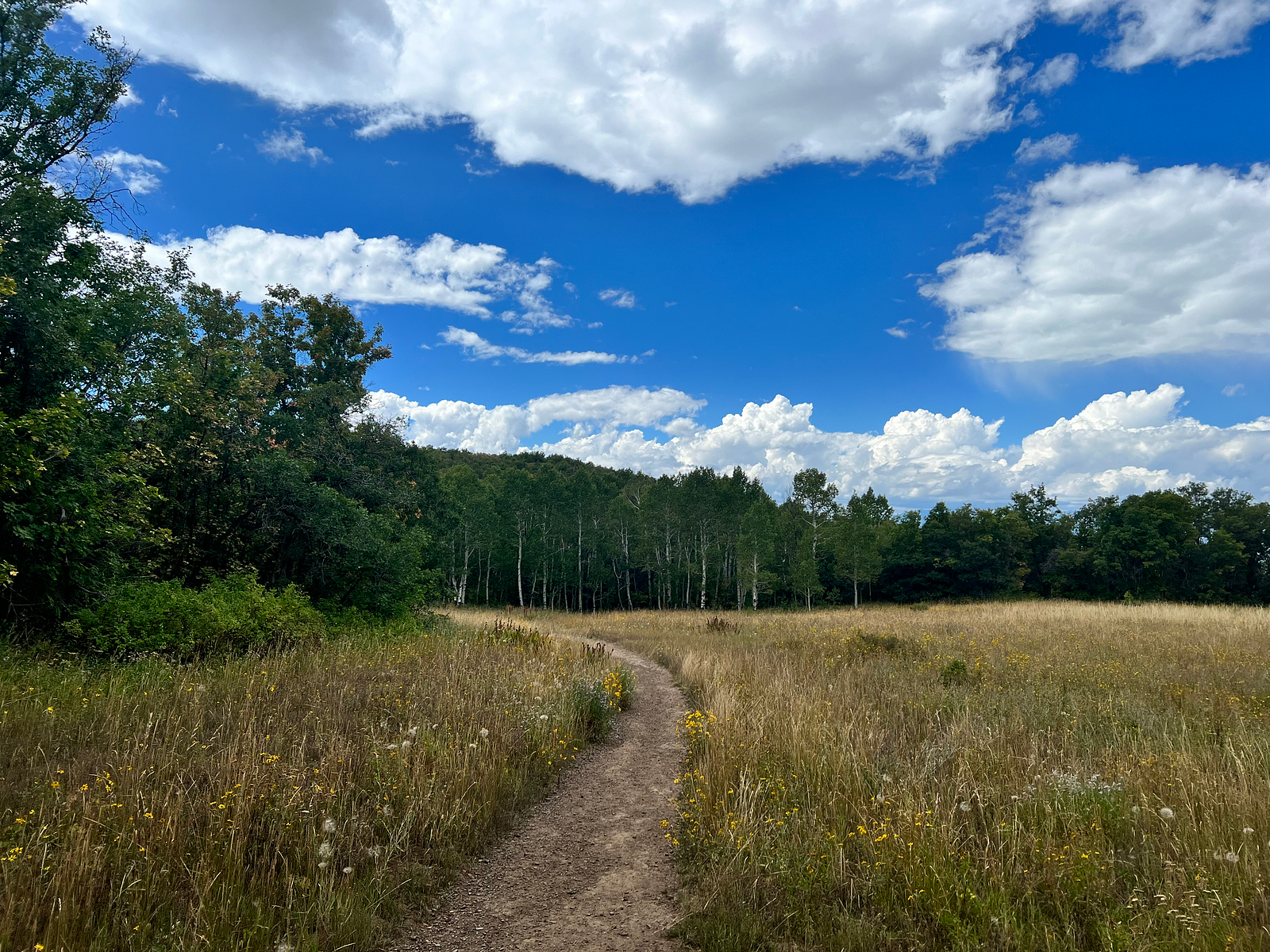
. . . . .
There are a lot of different types of hikes, but my favorites are the ones where you ascend.
It’s like a ritual. We don’t have enough good rituals anymore.
This one feels very primal, very mythical.
Ascending a mountain.
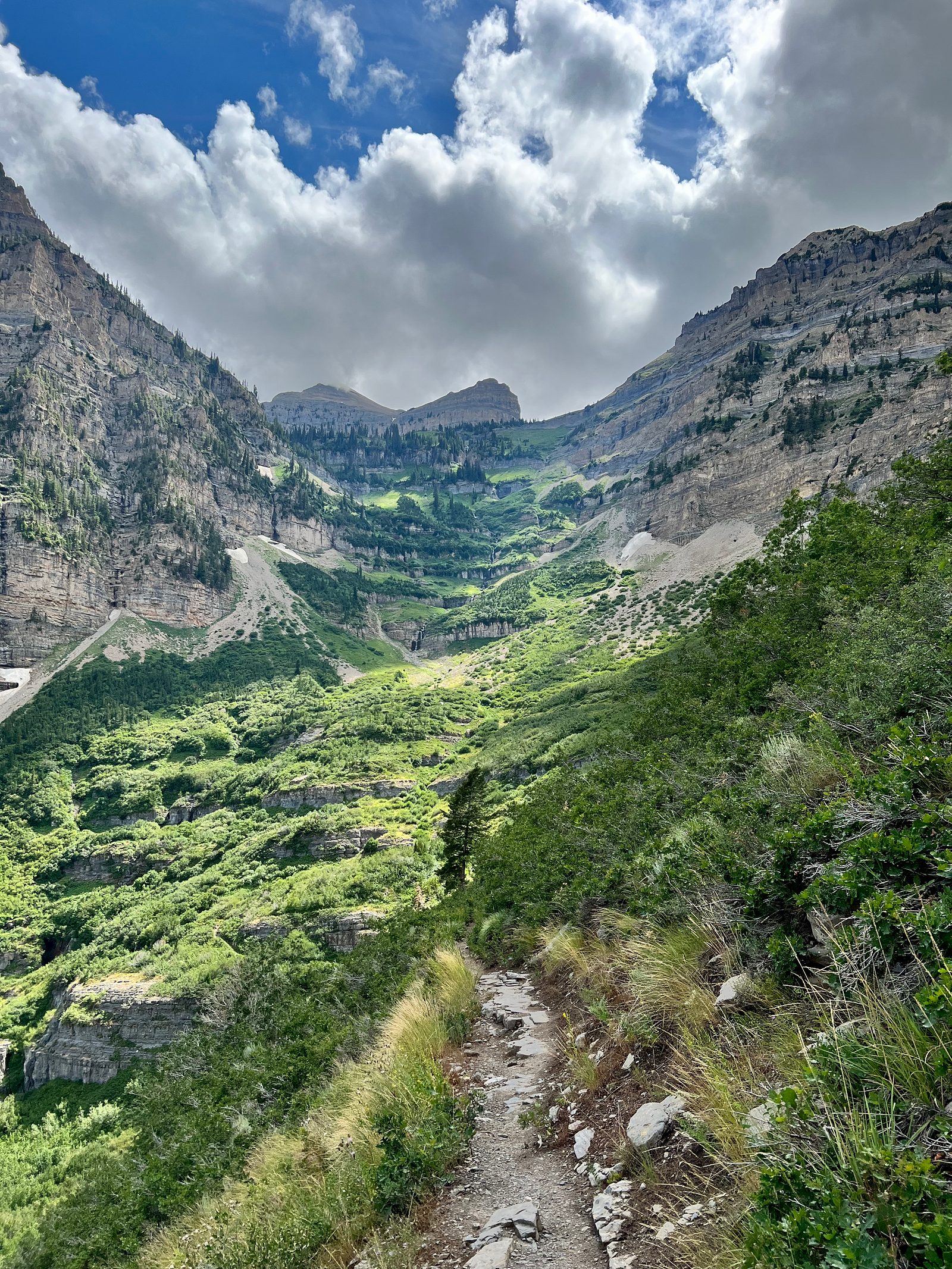
Remember those people I told you about on the Axiom? Their entire existence is passive. Everything is too safe and convenient.
But we need to do hard things. Humans are supposed to do hard things. Hiking a mountain is hard.
You feel it in your lungs. You feel it in your thighs. You feel the resistance and you push through.
And as you do it more, you feel yourself become stronger. You used to have a hard time getting to a certain point, but now you can do it and you feel satisfied that you can.
There’s a nice trance-like rhythm on a hike. The sound of your feet on the trail. Your breath. The occasional gusts of wind.
Everything trivial gets further and further away.
Sometimes you have encounters with wildlife and it can feel very spiritual, especially when you’re alone. The best hikes are often alone.
Reaching the summit always feels amazing, especially on longer hikes. You’ve achieved something. And the reward isn’t fame or money or status, it’s everything around you and inside you.
And you know, especially in the 2020s, that this is a different kind of experience. A more human experience.
. . . . .
It’s an interesting paradox that in Wall-E the robots are somehow more human than the humans.
They’ve held onto things. Physical things. Analog things.
Wall-E collects the discarded relics people have left behind. Old VHS tapes. Lighters. A Rubik’s Cube. And with the help of his partner in crime, Eve, the single surviving seedling that allows humanity to return to Earth and flourish again.
. . . . .
I’m not anti-technology. I’m just looking at outcomes.
iPhones are great but they won’t save us. I’m quite confident ChatGPT won’t solve the mental health crisis. I’m pretty sure some other shiny new app won’t fill the collective void either.
We put too much faith in the wrong things.
Maybe some are content with a mostly virtual, Axiom-like existence.
I’d rather heed the wisdom of the sages and light out for the wild.



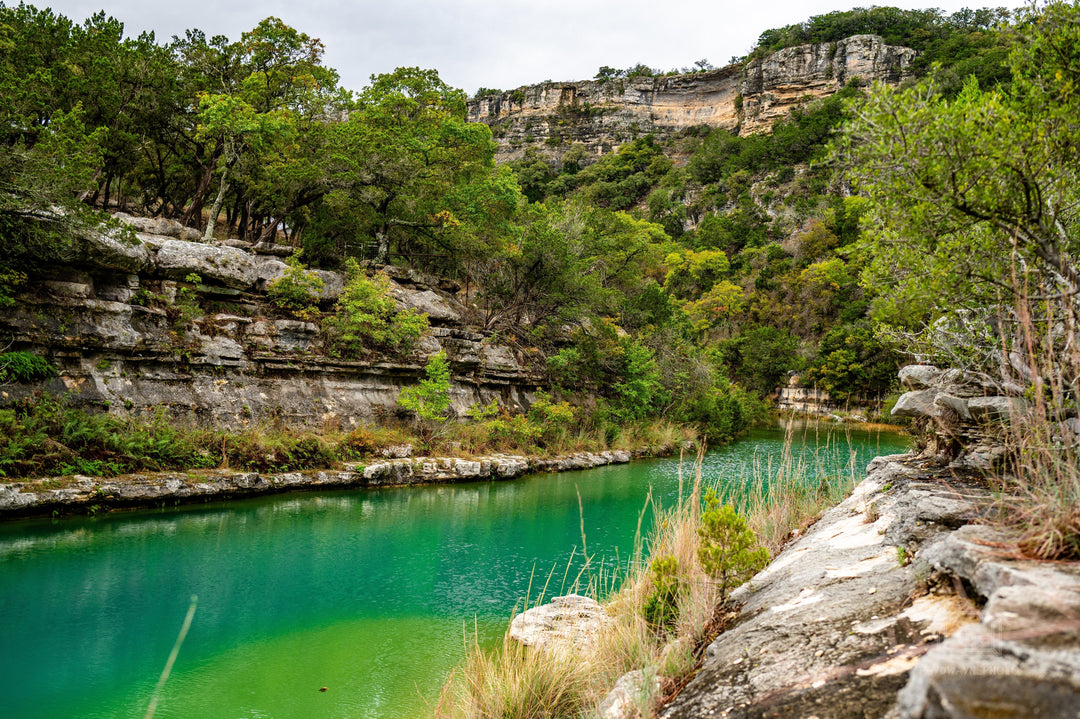
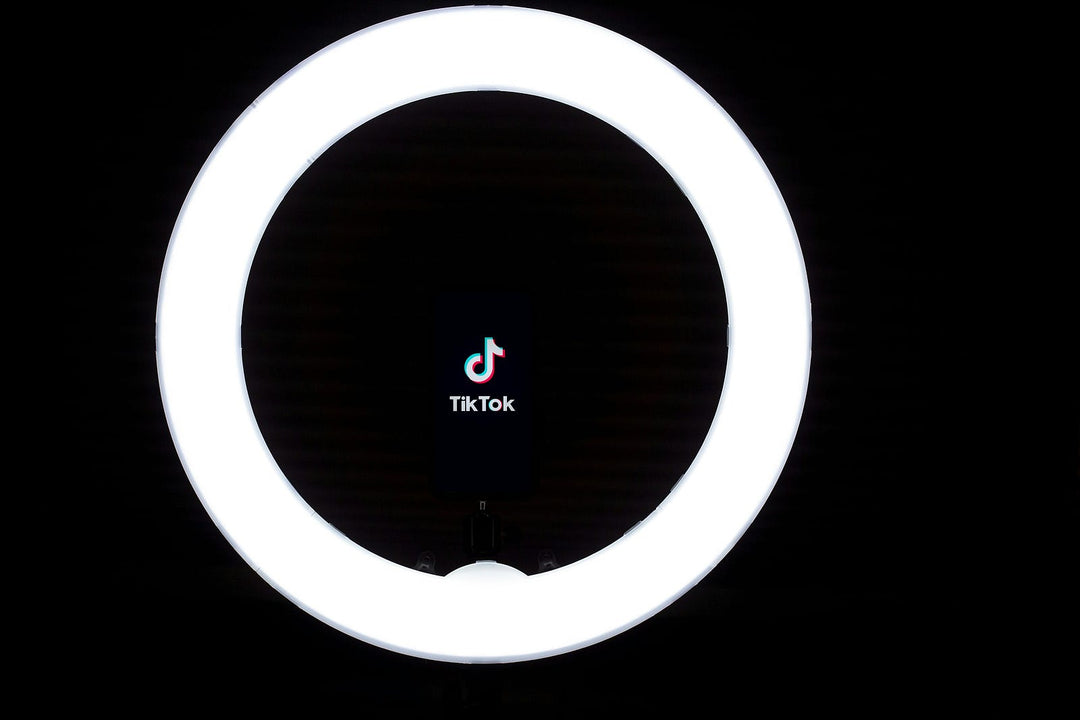
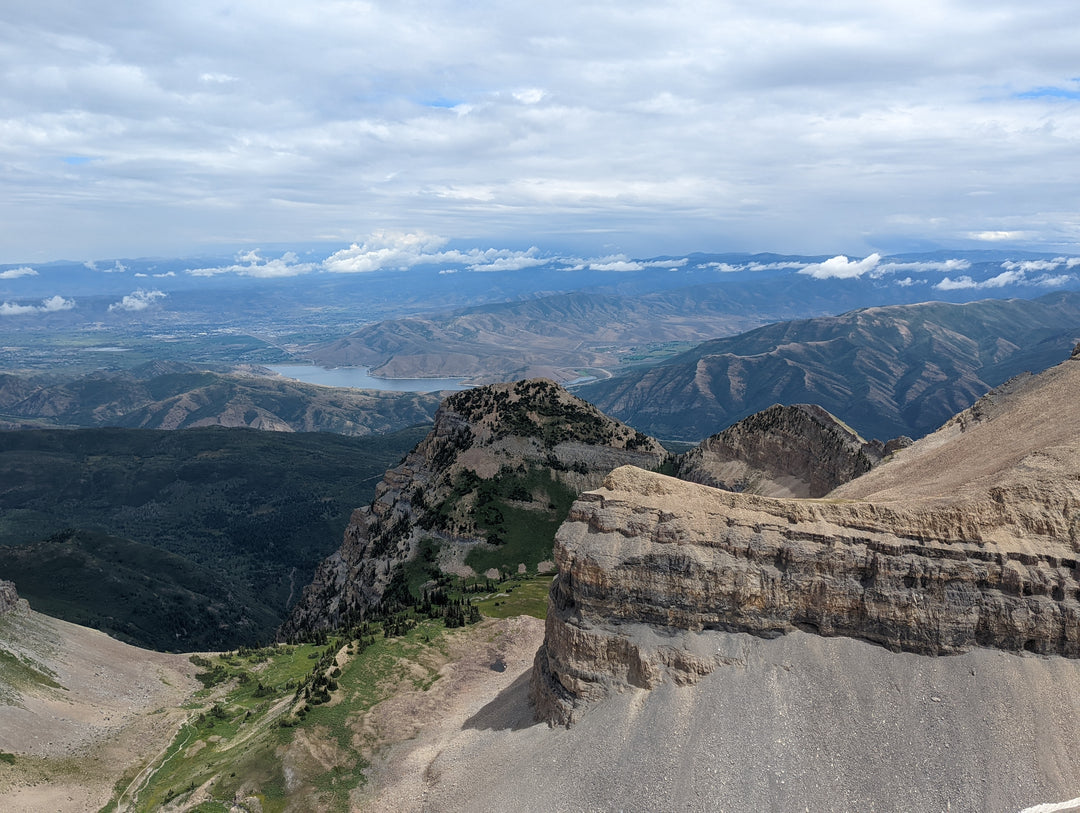
Leave a comment